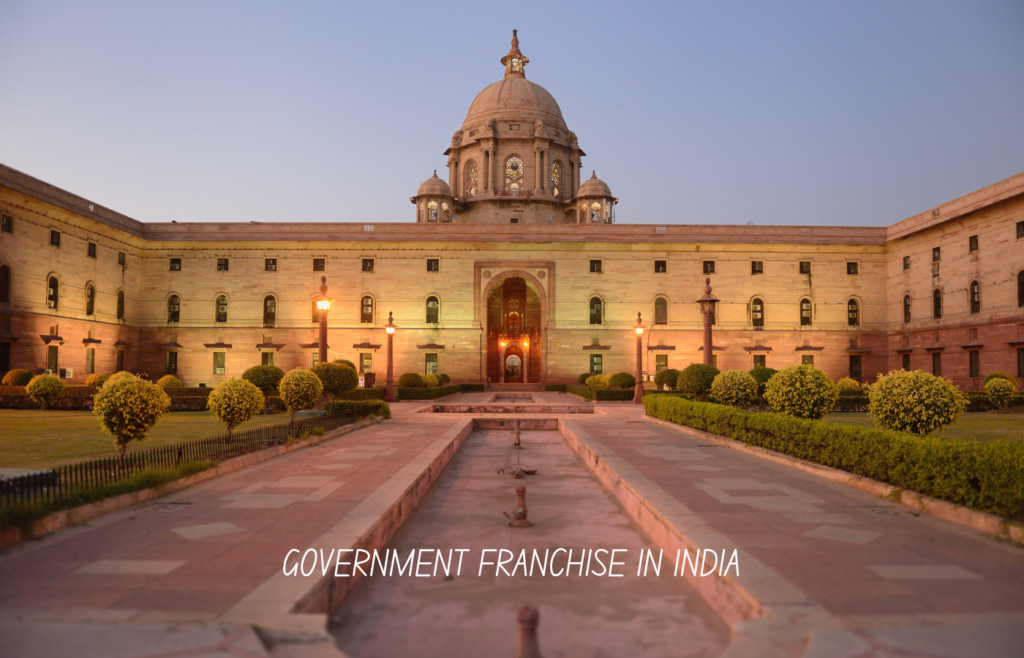Introduction:
India, with its diverse economy and vast population, presents a unique landscape for business opportunities. Among the various business models available, the concept of government franchises has gained significant traction. A government franchise in india involves a partnership between the government and private entities to provide essential services to the public. This model not only aids in the efficient delivery of services but also opens up numerous entrepreneurial opportunities. This article delves into the intricacies of government franchises in India, exploring their structure, benefits, challenges, and the process of obtaining one.
Understanding Government franchise in india
A government franchise in india is essentially a licensing agreement where the government allows private businesses to operate and manage services or products under a specific regulatory framework. This model leverages the efficiency and innovation of the private sector to enhance the reach and quality of government services.
Types of Government Franchises
Government franchises in India span various sectors, including:
Healthcare Services:
Medical diagnostic centers
Telemedicine services
Education and Training:
Vocational training institutes
Elearning platforms
Public Utilities:
Water supply and management
Waste management services
Transportation:
Public transportation systems
Road maintenance services
Retail Services:
Public distribution system outlets
Governmentsubsidized retail stores
Advantages of Government franchise in india
Market Stability:
Government franchises benefit from the inherent stability and support of governmental backing, ensuring a steady flow of customers and reliable revenue streams.
Credibility and Trust:
Partnering with the government enhances the credibility of the business, as consumers are more likely to trust services endorsed by governmental entities.
Access to Resources:
Franchisees often gain access to government resources, including land, infrastructure, and financial incentives, which can significantly reduce startup costs and operational expenses.
Regulatory Support:
Government franchises are typically subject to favorable regulatory conditions, including streamlined licensing processes and tax benefits.
Challenges in Operating a Government franchise in india
Bureaucratic Hurdles:
Navigating through governmental procedures can be timeconsuming and complex, requiring persistent effort and strategic networking.
Compliance Requirements:
Government franchises must adhere to stringent regulatory and compliance standards, which can be resourceintensive.
Competitive Bidding:
Securing a government franchise often involves competitive bidding, requiring detailed proposals and significant investment in preparatory work.
Operational Risks:
The operational landscape can be challenging, with fluctuating demand and potential policy changes impacting the business environment.
Process of Obtaining a Government franchise in india
Identifying Opportunities:
Stay informed about government announcements and tenders related to franchise opportunities in relevant sectors.
Application and Proposal Submission:
Prepare a comprehensive business proposal highlighting the capability to deliver the required services, including financial projections and operational plans.
Compliance and Documentation:
Ensure all necessary legal and regulatory documents are in order, including licenses, certifications, and financial statements.
Tender Evaluation and Selection:
The government evaluates proposals based on various criteria, including experience, financial stability, and service quality. Successful applicants are awarded the franchise.
Agreement and Implementation:
Once selected, a formal agreement is signed, outlining the terms and conditions. The franchisee can then proceed with setting up and operationalizing the franchise
Case Studies of Successful Government Franchises in India
EMitra in Rajasthan:
EMitra is a successful government franchise model in Rajasthan that offers a range of government and private services through kiosks and online platforms. It has significantly improved service delivery in rural and urban areas.
Jan Aushadhi Stores:
These governmentsubsidized retail stores provide affordable generic medicines to the public. The franchise model has expanded access to essential medicines across the country.
Common Service Centers (CSCs):
CSCs are a network of digital access points offering various government and nongovernment services. This initiative has empowered rural entrepreneurs and enhanced digital inclusion.
Future Prospects of Government franchise in india
Digital Transformation:
The growing emphasis on digital governance presents new opportunities for government franchises in areas such as egovernance, digital payments, and online service delivery.
Infrastructure Development:
With the government’s focus on infrastructure development, franchises in sectors like road construction, public transportation, and urban planning are poised for growth.
Healthcare and Education:
The increasing demand for quality healthcare and education services offers significant potential for franchises in these sectors, particularly in underserved areas.
Renewable Energy:
As India transitions towards sustainable energy, government franchises in solar, wind, and other renewable energy sources are expected to gain momentum.
Conclusion:
The concept of government franchises in India represents a symbiotic relationship between the public and private sectors. It harnesses the strengths of both to deliver essential services efficiently and innovatively. While there are challenges to overcome, the potential benefits make it a lucrative opportunity for entrepreneurs. As India continues to evolve, government franchises will play a crucial role in shaping the country’s economic and social landscape.
FAQs
What is a government franchise in india?
A government franchise in india is a business model where private entities are licensed to provide services or products under government regulation and support.
What sectors offer government franchise opportunities in India?
Government franchises are available in various sectors, including healthcare, education, public utilities, transportation, and retail services.
What are the benefits of obtaining a government franchise in india?
Benefits include market stability, enhanced credibility, access to resources, and regulatory support.
What challenges might one face in operating a government franchise in india?
Challenges include bureaucratic hurdles, stringent compliance requirements, competitive bidding processes, and operational risks.
How can one apply for a government franchise in india?
The process involves identifying opportunities, submitting a business proposal, ensuring compliance and documentation, undergoing tender evaluation, and formalizing the agreement upon selection.
What are some examples of successful government franchises in India?
Successful examples include EMitra in Rajasthan, Jan Aushadhi Stores, and Common Service Centers (CSCs).


